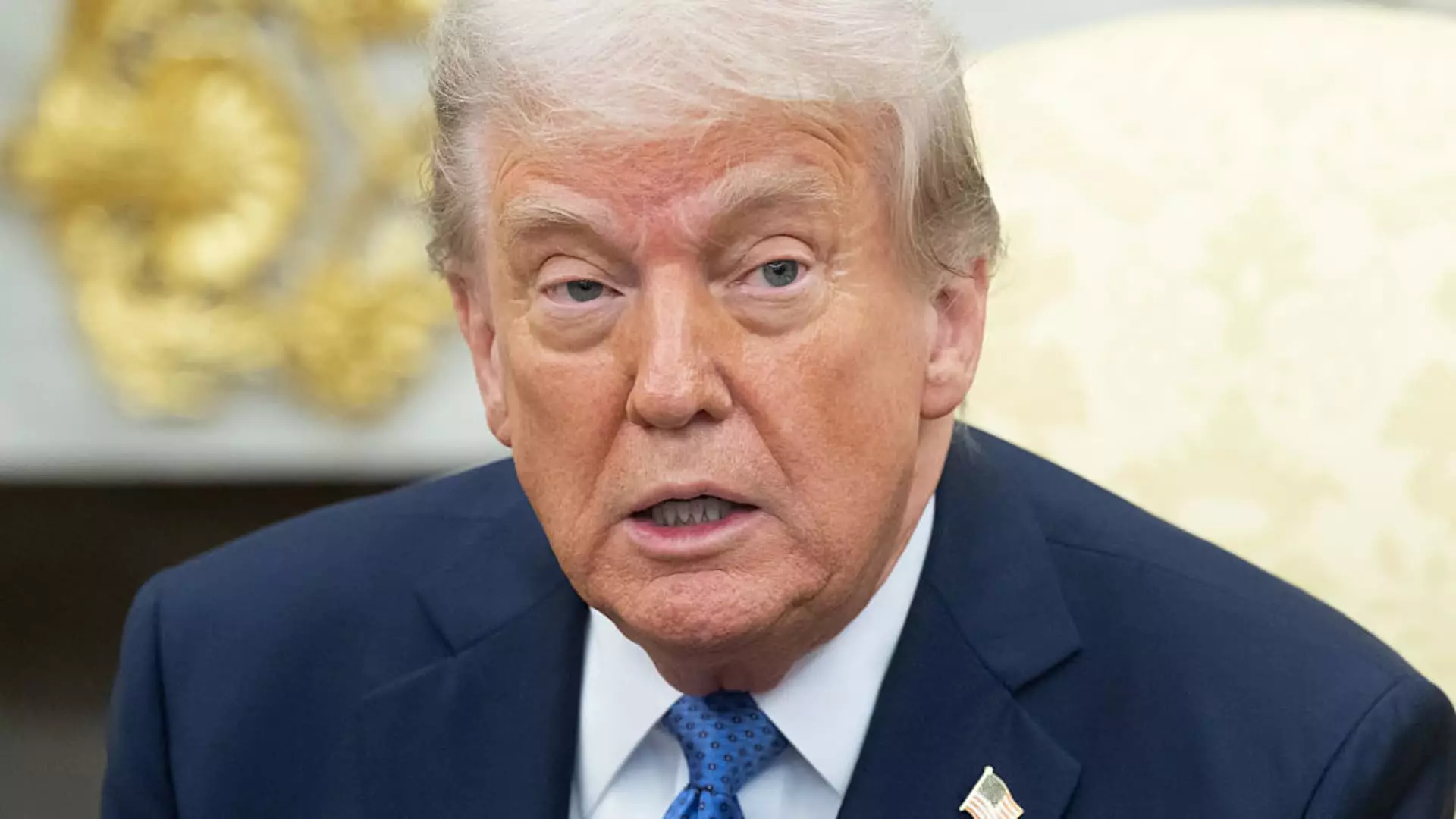The recent decision by the Trump administration to restore the legal status of international students, whose records were abruptly terminated, has sparked both relief and skepticism across educational institutions and legal circles. During a hearing in Oakland, California, Elizabeth D. Kurlan from the Justice Department announced a temporary reinstatement of these students’ records while Immigration and Customs Enforcement (ICE) seeks to develop a more comprehensive policy on status termination. This seemingly benevolent gesture, however, is cloaked in layers of ambiguity that highlight the administration’s complex relationship with international students and immigration rights.
The reality is that many international students have faced an alarming sequence of visa revocations, particularly targeting individuals who engage in political activism or have prior legal troubles, such as DUIs. These actions strike at the heart of not only academic pursuits but also individual freedoms, suggesting a punitive approach with consequences that ripple far beyond the immediate impacts on students. While Kurlan assured that ICE would no longer base terminations solely on findings from the National Crime Information Center, the ongoing authority of the agency to revoke student records remains a deep-seated concern.
The Snap of a Switch: Confusion Reigns Supreme
The sudden restoration of records has left many in a state of bewilderment. Immigration attorneys have reported clients experiencing dramatic reversals of their statuses almost overnight, akin to “somebody flipping a light switch.” While such developments are undoubtedly a step in the right direction for some, it also breeds a sense of precariousness among students, with many still left uncertain about their legal standing.
At institutions like the University of California, Berkeley, partial reinstatements create a patchwork of situations, where a dozen out of twenty-three students found their statuses restored. This inconsistency invites frustration as it casts doubt on the fairness of the process and raises questions about what measures will ultimately be implemented to safeguard these students’ rights. The reinstatement does not erase the troubling history of students being unfairly targeted, nor does it guarantee them a solid path forward, especially given that many still face visa revocations.
The Lingering Shadow of Uncertainty
The root problem lies in the fact that these students remain ensnared in a limbo state. David Wilson, representing a cohort of students in Minnesota, articulated the angst of being “trapped” in the country, where visa uncertainties loom large. Compounding this issue is the threat that the blemish of having had their SEVIS status terminated may have lasting repercussions on their future immigration applications.
Elora Mukherjee, leading the Immigrants’ Rights Clinic at Columbia Law School, underscores the need for the federal government to go beyond merely restoring records. The potential fallout for these individuals could hinder future opportunities for relief or residency, painting a bleak picture for those striving to achieve a secure foothold in the U.S.
Political Machinery at Work
The underlying motivations of the Trump administration’s actions cannot be overlooked. A grim commentary by immigration attorney Jath Shao suggests a lingering vendetta against the immigration system—evidence that ideologies and objectives have driven the legal maneuvers. The possibility that this administration is merely swinging back to streamline chaos, rather than rectify injustices, raises serious ethical and moral questions about the governance of immigrant rights.
While the temporary restoration of statuses offers a glimmer of hope, it is marred by the dread of continued governmental manipulation. Questions remain: What is the ultimate aim of these policies? Are they designed to genuinely support international students, or are they merely a band-aid on a gaping wound of a broader immigration critique?
In an era of rising nationalism and increasingly hostile immigration policies, the plight of international students presents a compelling case for urgent reform and advocacy. This situation serves as a wake-up call for a re-evaluation of our immigration practices—one that should prioritize human dignity and equal opportunity, regardless of a person’s nationality or past circumstances. The intervention of lawmakers and advocacy groups is essential to ensure that policies not only serve the needs of national security but also honor the contributions of international students to American society.


Leave a Reply